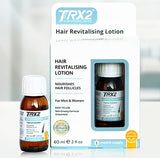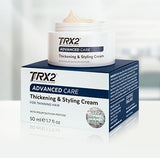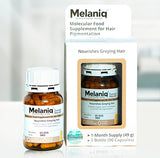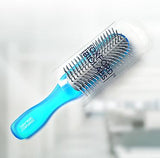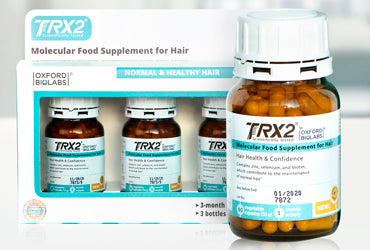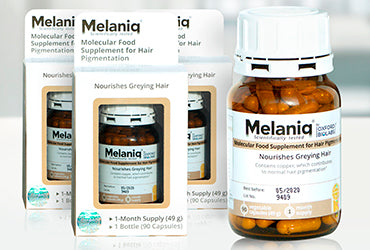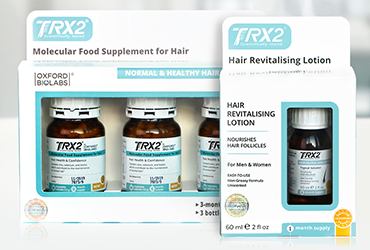Does leading a “healthy lifestyle” really help to prevent hair loss?
Androgenetic alopecia (AGA) is a hereditary condition primarily caused by genetic factors. In males and females with a family history of AGA, the process of hair miniaturization can begin as early as the late teen years.
Even though the heritability of androgenetic alopecia is inevitable, there are many steps hair loss sufferers can take to slow down the progression of pattern baldness. It is important to familiarise ourselves with the other factors involved in hair loss so that we can take strides to limit these external effects.
There are countless hair loss treatments on the market today. From pills, capsules, shampoos, serums, hair transplants, and laser therapy, if you name it it’s out there. Many of these are available with or without prescriptions, over-the-counter, and online. Although each product operates with a distinctly different method of action, they all promise the same thing - efficacy.
Nevertheless, some of these treatments are more effective to others. Before investing our money in therapies that have not been proven to work, we can make important lifestyle changes to keep our bodies (and therefore our hair) as healthy as possible.
Let’s stop focusing strictly on genetics.
Instead of dwelling on factors beyond our control, we can focus our energy into positive actions that change our lives for the better. To many people, especially those that are just beginning to lose their hair, this advice can often come across as patronising and extraneous. But even this modest change of perspective can pay extraordinary dividends if we accommodate it into our world view.
For starters, if we are going to waste time worrying about our hair, we should at least make that time productive. Make the effort to research emerging therapies, chronicle your experiences in a blog, immerse yourself in scientific publications, contact specialists within the industry or join an advocacy group (National Alopecia Areata Foundation, Locks for Love, etc.). It is amazing how the knowledge and experience gained through these actions can ease the frustration and anxiety associated with hair loss.
Another important step is to eat and live healthily. This may sound far too obvious and convenient to be effective, yet many people are surprised to find that simply living a healthier lifestyle can go a long way in strengthening hair growth. Diet and exercise not only prevent hair loss and breakage, they also restore energy and self-esteem (two peripheral problems that arise in tandem with hair loss).
Now, it is a whole lot easier to consider eating well-balanced, nutritious meals than it is to actually maintain a healthy diet (after all, Big Macs, Coke and Chinese takeout are absolutely delicious). Regardless, routinely eating healthy and wholesome foods is a great way to start fighting hair loss. Fast food meals that are high in fat, low in vitamins, and high in salt content can damage our kidneys, lower blood pH, and cause vitamin deficiencies (information according to Healing with Whole Foods and Smart Medicine for Healthier Living ). These factors weaken hair shafts and follicles, contributing to hair loss and breakage.
What else?
Staying optimistic, eating healthy and still losing hair? There are many other potential factors that contribute to hair loss that we can do something about.
Ask yourself, have you been getting enough rest and exercise? The stretch, exertion and relaxation of muscles are believed to regulate digestion and blood circulation throughout the body. This process can stimulate healthy hair cells in our scalp and increase blood flow to follicles. Are you overly stressed? Stress may be a little complex to understand in terms of how it directly impacts our health, but it has been known to exacerbate a variety of conditions (including hair loss).
Also consider these factors:
1. Do you dye/perm/treat your hair with chemicals on a regular basis?
2. Have you noticed more hair loss with your current shampoo?
3. Do you get enough sleep?
4. Are you anemic?
5. Are you taking birth control pills?
6. Do you suffer from an eating disorder?
7. Do you have skin problems?
Even though we cannot control our genes, there are many things that we can control. If you are experiencing a significant amount of hair loss every day, try some of these easy lifestyle changes in addition to your personal regimen:
1) Perhaps your shampoo and conditioner are too strong. You might want to switch to a product that has more “natural” and light ingredients.
2) Change your hair styling habits. The chemicals that your hair and scalp absorb through various hair care products might make your hair look beautiful for a short while, but they can also leave much more obvious damage in the long term. Tight hair styles and braids can lead to traction alopecia, which is easily avoidable.
3) Get at least 6-8 hours of sleep every day. Not getting enough sleep can cause a litany of health problems and leads to increased frustration, anxiety, and irritability.
4) Try taking multivitamins or eating iron-enriched foods.
5) Consult your physician if you are taking any pills or medication that might contribute to hair loss and check with your dermatologist to see if you are suffering from a different underlying condition like seborrheic dermatitis.
6) Ask your doctor about the FDA approved medications available for halting, and in rare cases, reversing pattern hair loss.




